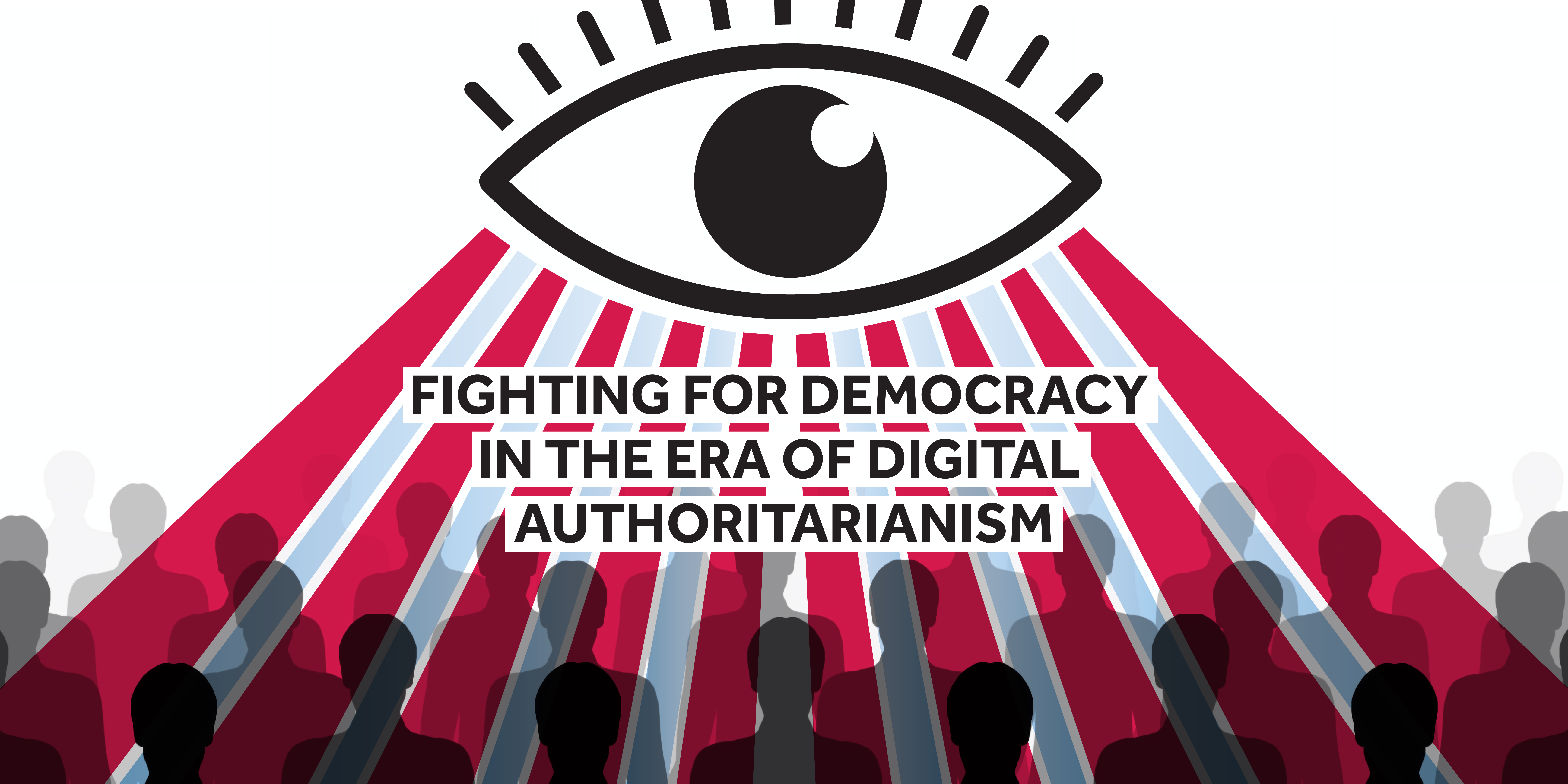A new study by the Digital Forensic Center entitled Fighting for Democracy in the Era of Digital Authoritarianism study aims to highlight the phenomenon of digital authoritarianism and the misuse of social media by authoritarian regimes, demonstrating the tactics they employ and how they impact democratic processes and institutions. The goal is to contribute to developing awareness, strategies, and policies to protect democratic and liberal values that Montenegrin society, at least declaratively, aspires to uphold.
The study can be found HERE.
The emergence of social media platforms at the beginning of the 21st century marked a global shift in how people communicate, exchange information, and engage in political mobilization. However, while these platforms have the potential to support democratic processes, they also provide authoritarian regimes with new opportunities for control, manipulation, and repression. Consequently, the misuse of social media by authoritarian regimes has become an acute problem for democracies worldwide.
With the rise of digital technology, many people, drawing from the experience of the Arab Spring, believed that the Internet and social media could be a force for democratization, potentially undermining the power of authoritarian regimes. In countries with limited media freedom and freedom of expression, social media served as an alternative source of news and information, providing a counterbalance to state-controlled media and narratives.
However, despite technology’s positive role in strengthening civil society and democratic values, the initial premise has proven somewhat utopian. The same tools that enable people to communicate, organize, and resist, and spread information about the abuses of their rights, are now being misused by governments that are at odds with democratic values and ideals.
The projection of strategic goals by authoritarian regimes through social media has become an increasingly common phenomenon involving information control, censorship, disinformation, propaganda, citizen surveillance, mobilization of supporters, spread of ideology, and establishment of control mechanisms.
On the contrary, digital authoritarianism has demonstrated the ability of certain regimes not only to adapt but also to reshape the power balance between democracies and autocracies by exploiting social media and leveraging the inherent weaknesses of democracies in responding quickly and uniformly to growing challenges.
Leaders of this trend include Russia, Iran, and China, which have developed modern methods of control, manipulation, surveillance, and censorship, first for domestic purposes within their geographical boundaries and then for information operations worldwide.
Propaganda and disinformation spread on the Internet, and social media deepen social polarization, exacerbate ethnic tensions, fuel nationalism, undermine public trust in media, journalism, public institutions, and democratic processes, and contribute to a crisis in liberal democracy. International reports witness this regression, highlighting that the Internet and democracy are becoming increasingly defensive and less free worldwide.
The motivation behind such actions is not only the consolidation, control, and strengthening of power but also the enhancement of authoritarian regimes’ international image and the promotion of distrust in democracy, the rule of law, and the exploitation and exacerbation of existing social, political, and economic divisions. The discrediting of these values and principles is directly linked to the survival of these regimes in power. In this regard, there is growing evidence of coordination and collaboration between Moscow and Beijing in spreading anti-Western narratives and mutual adoption of tactics.
Understanding the misuse of social media by authoritarian regimes is crucial for protecting democratic integrity in the digital era, as the world becomes more of a global village while internet freedoms are declining. At the same time, two-thirds of internet users worldwide live in countries where authorities punish citizens for expressing their personal views in the online space, and certain governments have started building their own digital space for easier control and surveillance, where state narratives dominate, and independent media and critics are marginalized. In this regard, citizens, media, and decision-makers must be ready and capable of anticipating, recognizing, mitigating, and countering the phenomena imposed by digital authoritarianism, ensuring that social media serve as a tool for democratic empowerment rather than a weapon for authoritarian control, repression, manipulation, and surveillance.
Due to the complexity of the challenges, democracies have been unprepared and slow for years in devising comprehensive responses. As the trends leading to the information and crisis of liberal democracy have shown, the response must be multi-dimensional. Therefore, a combination of public-private partnerships, media, and the civil sector should play a decisive role in defining and implementing a unified response in the future. In the meantime, authoritarian regimes will continue to exert pressure regardless of whether democracies can find an effective response or not.
From everything presented, the conclusion is evident that the best way to counter any form of authoritarianism is to nurture, defend, and uphold democratic values, the rule of law, free and fair elections, freedom of speech, as well as media independence, and professionalism. If democracies fail to defend their own achievements, principles, and interests with the same determination with which authoritarian regimes attack and target them, digital authoritarianism will become the new normalcy.

